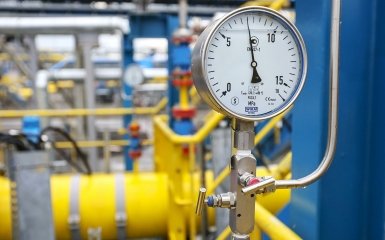European officials are negotiating to maintain gas supplies through a key pipeline in Ukraine after the transit contract between Naftogaz and Gazprom expires.
Points of attention
- Ukraine has the potential to become a key partner in the supply of gas from Azerbaijan to Europe through the Ukrainian pipeline.
- The decision to supply gas from Azerbaijan can help Europe avoid difficulties in cooperation with Russian Gazprom.
- European countries are looking for alternative sources of gas and are betting on more renewable energy sources as part of the climate strategy.
- Changing the gas supply strategy can bring positive changes to the energy situation in Europe and support the economy of Ukraine.
The EU is discussing the supply of gas through Ukraine after 2024
According to the agency's sources, representatives of the European government and companies are negotiating with their counterparts in Ukraine on how to ensure gas supply next year.
One option discussed is for European companies to buy and pump gas from Azerbaijan into Russian pipelines leading to Europe. Such an arrangement would allow Europe to avoid the difficulties associated with buying Russian gas while trying to limit Moscow's revenues.
Bloomberg writes that the idea is gaining momentum as it becomes clear that Ukraine will be in favour. Transit revenues in 2021 were about $1 billion, providing the most important financing for the war-torn economy. Some fear decommissioned pipelines could become military targets or fall into disrepair, which would be expensive to restore.
There are two factors that we must always keep in mind, Oleksiy Chernyshov, head of Naftogaz, told Bloomberg News. — One of them is that Ukraine has an incredible gas transit and storage infrastructure that should be used, and Ukraine intends to use this infrastructure because it brings many benefits.
He ruled out any plans to cooperate with Russia's Gazprom and said that gas supplies from Azerbaijan "may have some future."
The plan to use Azerbaijani gas could theoretically benefit Russia if it were organised as a swap that allowed Moscow to divert its gas elsewhere.
Russia is trying hard to find enough new fuel consumers, as its infrastructure is set up to supply fuel to Europe, and China is playing a challenging game. The idea of swaps is not far from oil and gas markets and is used in cases where it is physically impossible to deliver fuel from one place to another. Azerbaijan is already using its pipeline to Europe at total capacity.
What is known about the negotiations
Talks are at an early stage, and people familiar with the matter expect decisions to be made only before the end of this year, when the deadline — and the start of the European winter — will increase pressure. Many details still need to be agreed, and it is unclear whether a deal will be concluded. Events on the battlefield can also be a factor.
According to some sources, gas giant Uniper SE, nationalised by Germany because the energy crisis destroyed its business model, was involved in the discussions.
Slovakia is one of the key countries that could benefit from such a deal. Prime Minister Robert Fico, who was on a trip to Azerbaijan last month, spoke of the possibility without revealing details.
"Now the agreement on economic and price conditions depends on negotiations between such companies as Russian Gazprom, Azerbaijani, Ukrainian companies and others," he told reporters in May. — If they do this, Slovakia will be able to import gas from Azerbaijan, and part of it will remain in Slovakia, and part will go to other countries.
Russia still sends about 15 billion cubic meters of gas to Europe a year, mainly to Slovakia and Austria, where it is still the dominant supplier. In Austria, Russian gas has covered more than 80% of consumption for five consecutive months. Europe also imports Russian LNG by sea and, despite frequent arguments about whether it should, has never imposed sanctions on Russian gas.
The European Commission believes that the bloc will be able to withstand the cessation of Russian transit through Ukraine without serious security risks. It plans to rely on alternative suppliers and implement its ambitious climate strategy, including more renewables and energy savings.
Some member states are less optimistic and fear a repeat of the energy crisis, which corresponds to Ukraine's interests.
I am doing everything to find a solution, according to which the Ukrainian gas transportation system will continue to work, because it is a great asset and someone must be its customer, — said Chernyshov. — Otherwise, it will lead to losses.
The current transit agreement between Ukraine's Naftogaz and Russia's Gazprom was concluded at the end of 2019 for five years. The Ukrainian authorities have repeatedly stated that they do not plan to extend the contract.



